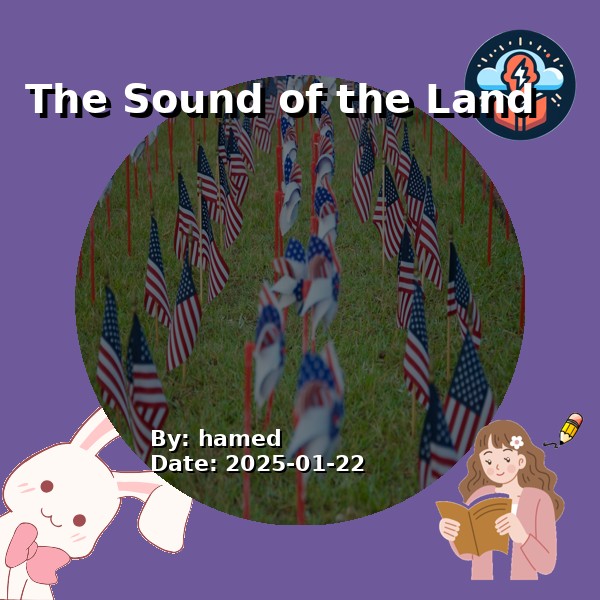The sun hung low in the sky, casting a golden glow over the red earth of the outback. A group of teenagers sat in a loose circle, their faces a mix of curiosity and skepticism. They had been brought here by their school, a last-ditch effort to connect them with their Aboriginal heritage. For most, it felt like a forced field trip, something to endure rather than embrace.
At the center of the circle sat Aunty Marli, an elder with silver hair tied back in a braid and eyes that seemed to hold the wisdom of the land itself. She smiled warmly, her hands resting on her knees. “Today,” she began, her voice steady and calm, “I want to teach you about dadirri—deep listening.”
One of the boys, Jayden, rolled his eyes. “Listening to what? There’s nothing out here but dirt and trees.”
Aunty Marli’s smile didn’t waver. “Dadirri isn’t just about hearing with your ears. It’s about feeling with your spirit. It’s about being still and letting the land speak to you.”
The group exchanged doubtful glances, but Aunty Marli continued. “Close your eyes,” she instructed. “Breathe deeply. Let go of your thoughts and just… listen.”
Reluctantly, the teenagers complied. At first, the silence was uncomfortable. Jayden fidgeted, his sneakers scuffing the dirt. But slowly, as the minutes passed, the sounds of the outback began to emerge—the rustle of leaves in the breeze, the distant call of a kookaburra, the soft hum of insects. The land was alive, and its song was subtle but undeniable.
Aunty Marli’s voice broke the silence, gentle and guiding. “Dadirri is how our ancestors learned to live in harmony with the land. They listened to its rhythms, its needs, its stories. When you practice dadirri, you’re not just a visitor here. You become a part of it.”
One of the girls, Mia, opened her eyes. “But what if we don’t know how to listen? What if we’ve forgotten?”
Aunty Marli nodded, her expression understanding. “The land hasn’t forgotten you. It’s always here, waiting for you to return. Dadirri is like a thread that connects you to it, to your ancestors, to yourselves. You just have to be still enough to feel it.”
As the afternoon turned to evening, Aunty Marli led the group on a walk through the bush. She pointed out the tracks of a kangaroo, the patterns in the bark of a gum tree, the way the stars began to peek through the darkening sky. “Everything has a story,” she said. “When you listen deeply, you’ll hear them.”
By the time they returned to the circle, the teenagers were quieter, more reflective. Jayden sat down, his earlier defiance softened. “I think I heard something,” he admitted. “Not with my ears, but… inside. It felt like the land was telling me something, but I don’t know what.”
Aunty Marli placed a hand on his shoulder. “That’s the beginning, Jayden. Dadirri isn’t something you master in a day. It’s a practice, a way of being. The more you listen, the more you’ll understand.”
As the group prepared to leave, Mia lingered behind. “Aunty Marli,” she said hesitantly, “can you teach us more? About dadirri, about the land… about who we are?”
Aunty Marli’s eyes sparkled with pride. “Of course, my girl. The land has so much to share, and so do I. This is just the beginning.”
Under the vast, starry sky, the teenagers climbed into their bus, their hearts a little lighter, their spirits a little more connected. And as the engine rumbled to life, Aunty Marli stood watching, her hand raised in a silent farewell. She knew the journey ahead wouldn’t be easy, but she also knew the power of dadirri. The land had spoken, and its song was already weaving its way into their hearts.
